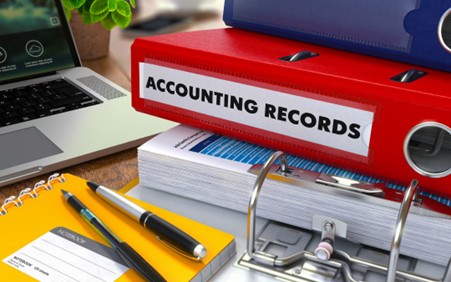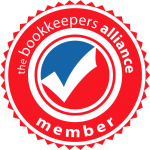
Bookkeeping with a personal touch
07759 983428


Bookkeeping with a personal touch
07759 983428

The first one is your income. Now, hopefully you’re using either some kind of accounting software or at least a Word or PDF template for your invoicing. If it’s the latter, just make sure that you’re saving copies of those. Most customers pay their bills electronically but there are some that still pay by cheque or cash. If it’s cash, this must be banked and best to keep the pay in slip you receive from the bank.
Next are your expenses. Now, hopefully you are keeping receipts/invoices for everything. Bookkeepers can be a stickler for it!
Hopefully most of your expenses are going through your business bank account. If HMRC were ever going to have an investigation into your tax return and they were going through expenses, there will be some that they probably won’t question, and that’ll be things that are obviously related to your business. This can be things like business insurance or your software. Now, with those, obviously if you can keep the invoices that go with them, that’s great, but it’s realistic to say some receipts/invoices can get lost.
The things that HMRC are going to ask you, or if you’ve got an accountant preparing your tax return, the things that they will ask for are anything that could be personal, so have a dual use, or things that just aren’t clear at all.
Things that have a dual use, that could be, let’s say for example, you go to Asda and you pick up some stationery. You will only see from your bank account that you’ve bought something from Asda, so keep the receipt so you can prove that it was a business expense and not part of your weekly shop. The same if you were to, say, buy an iPad from John Lewis, these are things or places where you can buy business things, but you can also buy personal things, so keep those receipts if you can.
The ones that can be tricky and have no idea of, are generally if you buy things from platforms such as Amazon or eBay, or maybe you pay for something through PayPal, or it could be that you’ve withdrawn some cash and then made some cash purchases. You should try and keep hold of all of those invoices, because those are the ones that your accountant and HMRC will zoom in on, but how you keep the records is up to you. Best way to hand over your paperwork to your bookkeeper is in monthly order. If you find a method that suits you both, best stick to it.
HMRC will expect you to keep records for up to six years after the tax year has completed, so don’t do your tax return and then pop everything in the bin, do try and keep hold of it.
That’s kind of it, really, in terms of your records. Make sure you’ve got copies of all of your customer invoices and expenses. Retain your annual accounts, tax return and paperwork for six years, which feels like a very long time, but that is HMRC’s window to looking into your expenses.


Registered with HMRC Anti Money
Laundering Scheme.



By continuing to use the site, you agree to the use of cookies. more information
The cookie settings on this website are set to "allow cookies" to give you the best browsing experience possible. If you continue to use this website without changing your cookie settings or you click "Accept" below then you are consenting to this.
